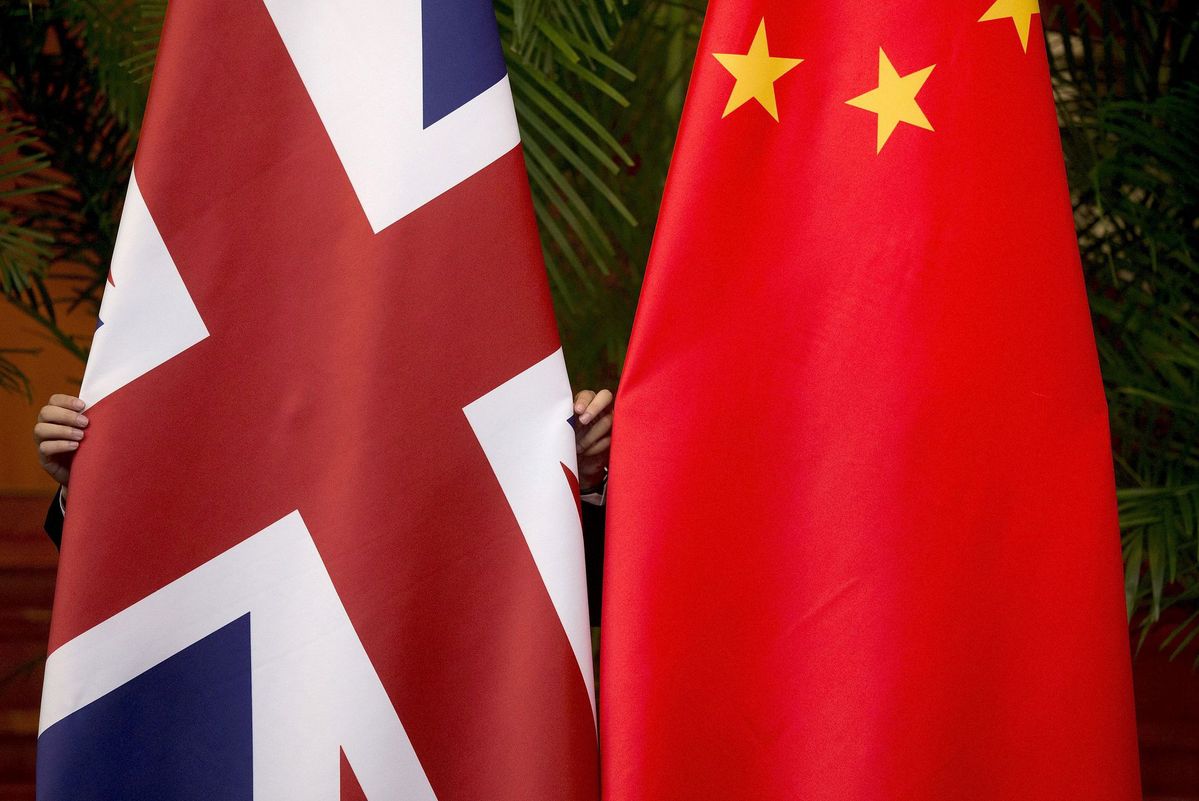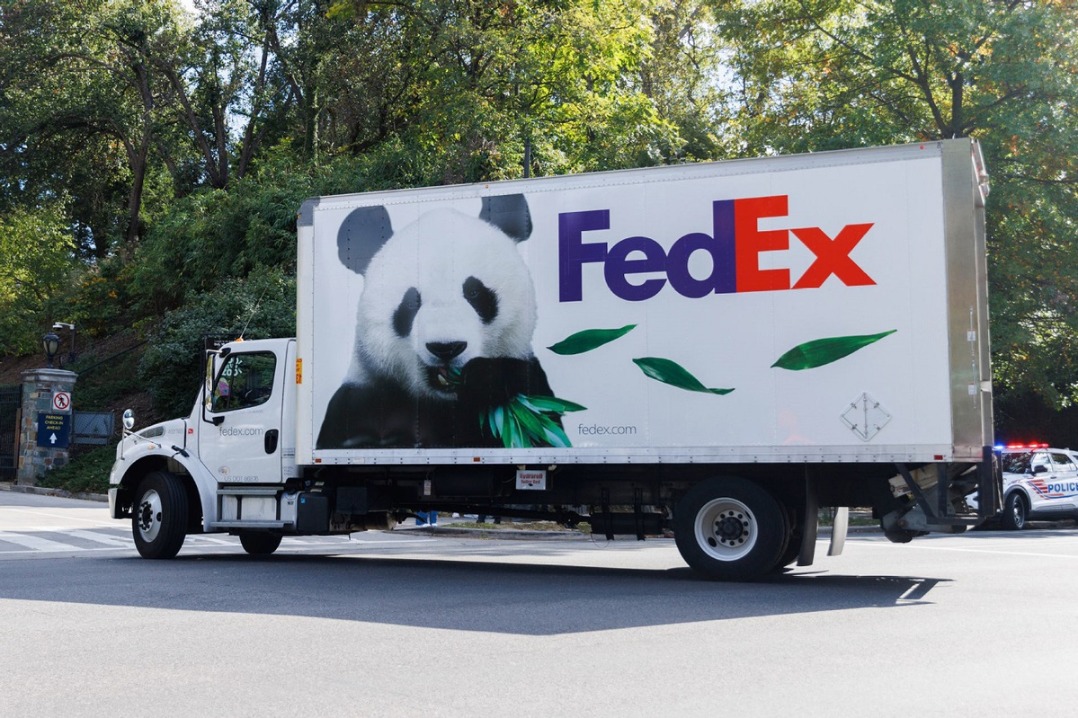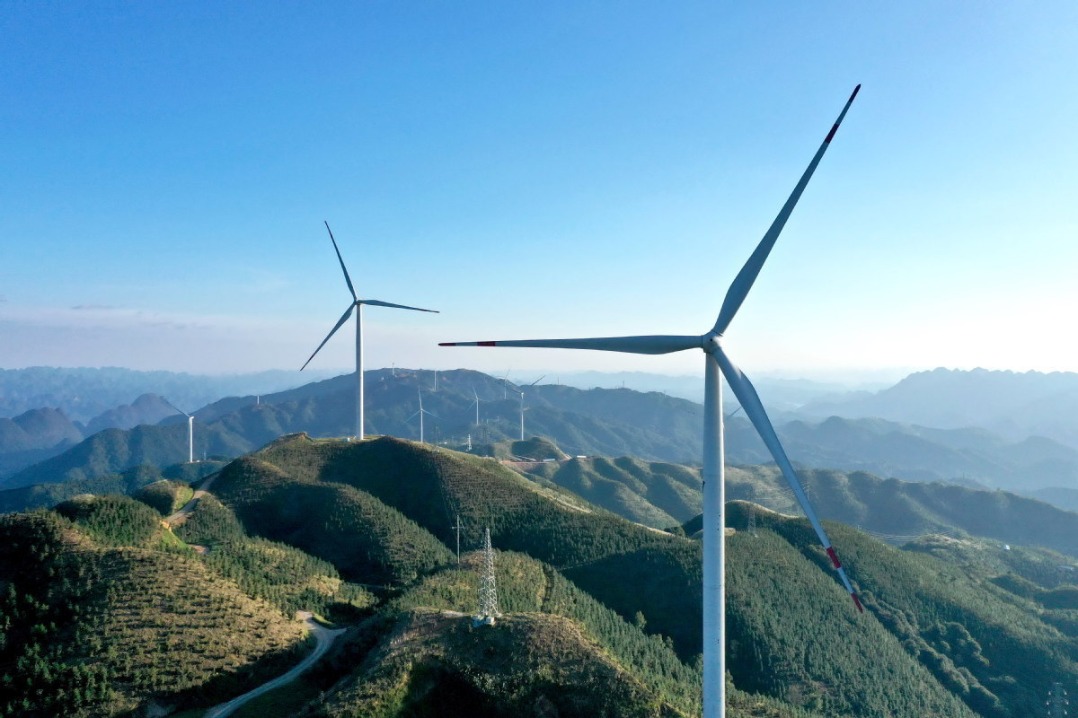50 years of China-UK relations: A retrospect
chinadaily.com.cn | Updated: 2022-04-27 09:33

This year marks the 50th anniversary of China-UK ambassadorial diplomatic relations. To commemorate this special moment, former Chinese ambassador to the UK, H.E. Liu Xiaoming, shared his precious memories and retrospects about the China-UK relations in an interview with the China-Britain Business Council (CBBC), reflecting on how one of the most important bilateral relations for China has developed and shedding lights on which direction it may go in the days to come.
1.Can you tell us about some of your most enjoyable moments during your time as ambassador to the UK?
I served as the Chinese ambassador to the UK for 11 years, the longest serving one in the history of China-UK relations and in China as well. The most enjoyable moments, over that period of time, were those I shared with Chinese and British friends in promoting friendship and cooperation. Those have become my precious and fond memories. And the most unforgettable of all was the Chinese New Year celebration in Trafalgar Square. I went to the event for 10 consecutive years to join the British people in celebration of the Chinese New Year.
The Chinese New Year celebration in Trafalgar Square is a leading multi-cultural event in London, and the biggest Spring Festival celebration outside Asia, attracting around 700,000 people every year. The celebration is impressive because it transcends national boundaries and cultural differences. It presents not only traditional Chinese cultural performances such as Chinese songs and dances, painting and calligraphy, dragon and lion dance, but also Western opera and musical performances. It is a platform for both Chinese and Western cultures and a nurturing ground for China-UK friendship, enriching our people-to-people ties. That is why it enjoys support from the royal family and the British government, receiving congratulatory messages from H.M. Queen Elizabeth II and British Prime Minister. In addition, Downing Street No.10 has held Chinese New Year receptions for a couple of years. My wife and I have been invited to attend, joining the local Chinese communities to celebrate the New Year.
I am glad to see that this year, despite the COVID-19 pandemic, there were still lion dances in Trafalgar Square in celebration of the Year of the Tiger, which attracted a lot of passers-by to watch. Indeed, just as my British friends often say, "the show must go on!"
2.What do you think were the biggest ambassadorial successes during your time as ambassador to the UK?
What has made me most proud is the "ice-breaking spirit" in the China-UK relationship, which has led the way for China's relations with the Western world. Of the major western countries, Britain was the first to apply for the Asia Infrastructure Investment Bank (AIIB) membership and inject capital into its special fund; the first to issue RMB bonds and appoint a special envoy for the Belt and Road cooperation, and the first to sign the Guiding Principles on Financing the Belt and Road Initiative.
On China's part, we established a comprehensive strategic partnership with the UK earlier than other European countries; we chose London to issue the first RMB sovereign bonds and central bank bills overseas, in support for London to become the world’s biggest offshore RMB trading center. China's investment in the UK surpassed that in most other European countries. These "firsts" epitomized the China-UK relationship leading the way for China's relations with Western countries. They were important milestones that I witnessed as ambassador to the UK.
3.What were the most significant diplomatic moments between the two countries during your time as ambassador to the UK?
President Xi Jinping's state visit to the UK in 2015 ushered in the "Golden Era" of China-UK relations. This is undoubtedly the most important and far-reaching moment, the very highlight, of bilateral relations in recent years.
That was indeed a "super" state visit. Britain greeted President Xi with exceptional protocol: at Tower Bridge and Green Park, a 103-gun salute was fired, the highest British royal salute; Queen Elizabeth II held a grand welcoming ceremony for President Xi and hosted two banquets for President Xi and Madame Peng, with most of the royal family in attendance. After the state events, Prime Minister Cameron invited President Xi and Madame Peng to Chequers, and accompanied them on a visit to Manchester.
That visit has lifted the bilateral relationship to a "global comprehensive strategic partnership for the 21st century", and produced nearly 150 deliverables, including the launch of the Shanghai-London Stock Connect. It consolidated the China-UK friendship and opened up broader prospects for bilateral relations. Despite some twists and turns in the following years, cooperation remains in the fundamental interest of both countries as it benefits both sides. I am confident that with the concerted efforts of our two countries and peoples, China-UK relations have a brighter future and will regain its full vigor.
4.How have ambassadorial relations evolved since your time as ambassador to the UK?
During my 11 years as China's ambassador to the UK, I had the honour of working with four British prime ministers and six foreign ministers and staying in touch with key members of the royal family. During that period, the China-UK high-level dialogue mechanisms grew more expansive, the global significance of China-UK relations more prominent, and the friendship between the two countries closer.
First, the leaders of the two countries kept regular communications and interactions. China and the UK held five prime ministerial meetings, five strategic dialogues and eight economic and financial dialogues. A high-level people-to-people and cultural exchange mechanism, as well as a high-level security dialogue, were launched.
Second, the two countries enhanced coordination under the UN, the G20 and other international frameworks. We were more united on supporting multilateralism and free trade, opposing unilateralism and protectionism, and jointly addressing global challenges like climate change. The two countries also stayed in communication and coordination on international and regional hot spots.
Third, the two countries deepened mutual understanding and people's support for bilateral relations. Over the past 11 years, the number of annual visits between China and the UK has doubled to 2 million. The number of Chinese students in the UK increased more than onefold to 220,000. Britain has become the country of choice for Chinese students seeking to study abroad. Bilateral exchanges and cooperation in culture, science, technology and innovation have yielded fruitful results. Britain was the first country to sign the Science and Technology Innovation Cooperation Strategy with China. In the face of COVID-19, the two peoples rendered each other support and stood together in solidarity.
Nonetheless, given our differences in political system, stage of development, history and culture, China and the UK take different views on some issues and bilateral relations are not always plain sailing. But as two major countries with global influence, China and the UK shoulder an important responsibility to uphold world peace and development. China-UK relations must stay on the track of cooperation. I believe when the two countries look at the overall picture, meet the trend of the times, enhance communication and cooperation in a spirit of mutual respect and equality, China-UK relations will transcend the differences and enjoy sound and stable development.
5.What were some of the biggest obstacles you overcame during your time as ambassador to the UK?
Among the major Western countries, Britain was the first to recognize the People's Republic and among the first to develop trade relations with us. As we speak, exchanges between the two countries are multi-faceted and involve all fields, with a breadth and depth unseen in the past. Nevertheless, the "deficit" of mutual understanding and mutual perception still exist. That was the biggest obstacle I tried to overcome during my tenure. I once said that Britain is like a good read, and so is China. Unfortunately, in Britain, some people only look at the book cover or listen to some kind of irresponsible "book review", and they think they have known the real China. During my time as ambassador, I did my level best to present to the British society a true China that has friendship and opportunities to offer.
To that end, I visited around the UK, from the northernmost Yell of Shetland Islands to the Channel Islands in the South, from England to Scotland, from Northern Ireland to Wales, and from royal dependencies to overseas territories. I developed extensive contacts with Britons of all social sectors to promote China-UK mutual understanding and cooperation in various fields. I gave over 700 speeches, published over 170 articles in mainstream newspapers and gave 170 plus interviews to mainstream media. It is also my hope that the CBBC will continue to serve as a bridge that helps the two countries overcome the "deficit" in mutual understanding and perception.
6.How do you think CBBC helped UK-China business relations during your time as ambassador to the UK?
China-UK trade relations wouldn't have come thus far without the hard work of the business communities in both countries and the CBBC as well. During my time as the Chinese ambassador, I have seen the Council, under the leadership of Sir David Brewer, Lord Sassoon and then Sir Sherard Cowper-Coles, connecting the businesses of China and the UK and offering good suggestions for practical cooperation. The CBBC has done a lot to let people know the benefits of China-UK trade relations and encourage all sectors of the British society to view China's development in a fair and comprehensive way. You have played a big role in promoting a right perception of China and Britain's cooperation with China.
More specifically, the CBBC has:
First, tapped into its influence and spoken up multiple times for the British government to extend friendship, stabilize businesses' confidence in China-UK cooperation, deepen mutual trust and keep such cooperation intact;
Second, published two issues of the UK Jobs Dependence on Links to China, a research endeavor to reveal the win-win nature of China-UK cooperation and its importance to the British economy, calling for a rational approach to China;
Third, organized high-profile seminars to guide the public opinion, creating platforms for sound interactions between the two countries and contributing to bilateral cooperation and mutual trust;
Fourth, coordinated Chinese and British companies and financial institutions to extend COVID-control supplies to each other, bringing the two countries closer in this trying time.
In sum, the CBBC not only gave me strong support and enormous help when I served as ambassador, but more importantly, did great service to the mutual trust, strategic consensus and shared interests between our two countries.
7.What do you think have been the biggest achievements regarding trade and investment between the two countries?
During my 11 years in the UK, the two countries came a long way in trade and investment, major projects, financial and the Belt and Road cooperation.
From 2009 to 2020, trade in goods between China and the UK increased from US$39.2 billion to US$92.4 billion, and British exports to China grew by nearly 20 times. By the end of January 2021, when I left the UK, its direct investment in China reached US$26.42 billion, while China’s direct investment in the UK amounted to US$18.11 billion, about 17 times higher than the US$1.02 billion at the end of 2009. Britain has become China's second largest investment destination in Europe. The Hinkley Point C nuclear power plant, China's single biggest investment endeavor in Europe, stands as a flagship of China-UK cooperation.
Over the past 11 years, the number of Chinese banks with UK branches has risen to eight. The Shanghai-London Stock Connect was officially launched, and more Chinese enterprises went public at the London Stock Exchange, enabling the very first links between Chinese and foreign capital markets. London has become the world's largest offshore RMB trading center and the second largest offshore RMB clearing center. China and Britain signed an agreement to extend their Belt and Road cooperation to third markets, spanning the sectors of financing, professional expertise and service.
The mutually beneficial economic and trade cooperation has delivered tangible benefits to the people of both countries: Chinese enterprises built in the UK the then largest battery energy storage project in Europe; Chinese-invested electric and low emission taxis run in the streets of London; British foods and drinks are on the kitchen table in Chinese households, thanks to the China International Import Expo. Chinese investment has contributed considerably to the tax revenues and job creation in the UK, while giving impetus for British companies and industries to transform, upgrade and move toward higher-quality development.
In sum, I believe that China-UK economic and trade ties have vast potential and enormous prospects. The next 50 years will see an even more brilliant chapter of China-UK cooperation.
























